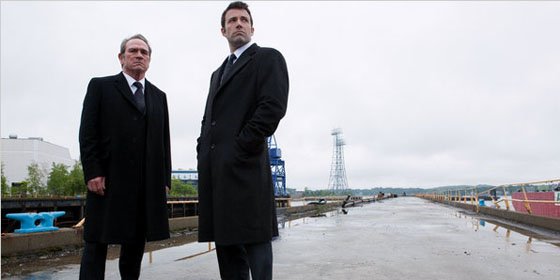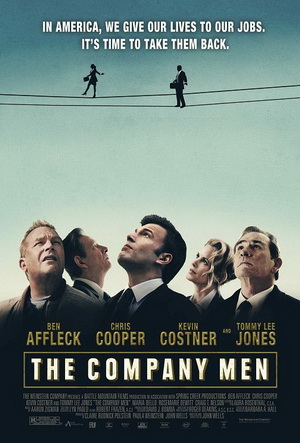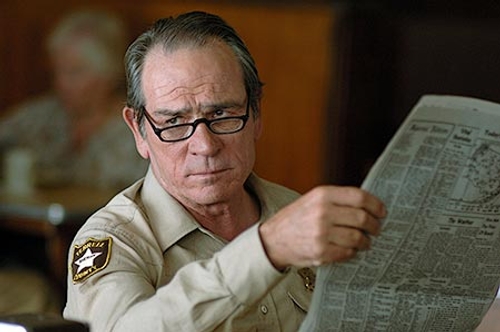
It didn’t find an audience in the US but this drama is a thoughtful depiction of the American workplace during the current recession.
Exploring the contemporary economic malaise through the lens of a fictional Massachusetts company GTX, the story focuses on various employees as they gradually feel the effects of corporate downsizing.
The principle focus is on a cocksure sales guy (Ben Affleck) in his late 30s; his veteran colleague (Chris Cooper) and the company’s co-founder (Tommy Lee Jones) as they all try to deal with the pressures applied by their cost-cutting CEO (Craig T Nelson).
As they have to deal with the soul destroying effects of losing their white-collar livelihoods, they all struggle to cope with unemployment and its impact on their personal and professional lives.
 Director John Wells has had an illustrious career in television with megahits like ER and The West Wing, and like those shows his debut feature deals with white-collar workers and contemporary social issues.
Director John Wells has had an illustrious career in television with megahits like ER and The West Wing, and like those shows his debut feature deals with white-collar workers and contemporary social issues.
Some will criticise the film for not dealing with those lower down the economic food chain, but it is arguably more daring to examine the soured dreams of the American middle class.
Although by no means perfect, it is a restrained but compelling portrait of people coming to terms with the uncertainty and despair following the financial collapse of 2008.
Wells has assembled an excellent ensemble cast: Affleck convincingly displays the arc of a complacent man gradually humbled by circumstance; Rosemary DeWitt is an effective voice of reason and love as his wife; Jones brings a wise, grizzled anger to his part whilst Cooper paints a haunting portrait of an older worker in despair.
The supporting turns are also of a high standard: Nelson makes for a ruthlessly logical boss; Maria Bello is his conflicted hatchet woman; whilst Kevin Costner has his best role in some time as Affleck’s blue-collar brother-in-law who offers him work.
Set in sterile corporate offices or suburban houses, the hiring Roger Deakins as cinematographer was a master stroke: not only does he light these environments with his customary skill and taste, but he also brings a visual elegance to the film which is so well executed you barely notice it.
This is not a film with especially earth shattering revelations, as anyone with a brain can deduce that unemployment leads to misery and despair.
But the screenplay, based on extensive interviews and research, is filled with painfully accurate touches: the outplacement seminars designed to help laid off workers; the corporate obsession with the stock market; the quiet agony of trying to get re-employed, the effects on loved ones and the struggle to re-establish an identity defined by a job.
Coming at time when America and Europe is only just coming to terms with the scope of the late 2000s recession, the film is powerful reminder of the Capitalism gone horribly wrong.
No doubt that is why audiences have largely stayed away from the film, as this is a raw subject, perhaps too close to home for many individuals and families affected by job losses.
There are times when the screenplay and guitar-inflected score reach for sentimental uplift, but overall the message throughout is fairly subversive for a mainstream American film.
Not only does it point out the callow nature of corporate America but also highlights the emptiness of material possessions and shallow thinking that played a part in inflating the sub-prime mortgage bubble.
An unusually bold film, it deserves credit for confronting an issue that will unfortunately be around for some time to come.
> Official site
> Reviews of The Company Men at Metacritic
> Find out more about the late-2000s recession at Wikipedia

